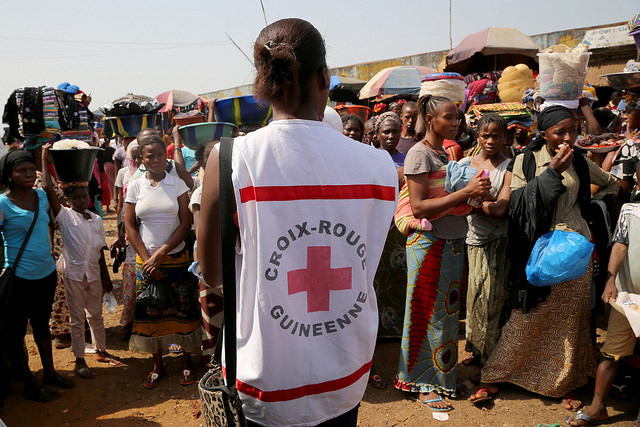The Ebola outbreak of 2014 is the largest one in history. As of March 2014, levels of transmission were low in Liberia, with only one new case reported in the week before February 22, but new cases are being reported at higher rates in other African countries. Medical and public health experts have contributed to containing the epidemic in certain African countries, but the risk of transmission is still high without proper precautions.
A new precautionary measure to prevent transmission has been introduced: be careful around victims even after their death. Researchers from the National Institute of Allergy and Infectious Diseases (NIAID), a part of the National Institutes of Health (NIH), conducted a study, testing the bodies of five monkeys over a period of weeks to determine the length of time the virus could stay present in corpses. They took surface swabs from the skin as well as swabs from various internal organs. Analysis of the samples revealed that live, infectious Ebola remained in organs for about three days and on the surface for about seven. Non-infectious Ebola was found from surface and internal swabs even up to 10 weeks after death.
In addition, the research helped determine effective ways of testing for the presence of the virus in victims’ bodies by taking mouth swabs in controlled environments as opposed to tissue biopsies. This helps family or community members know if they need to exercise caution, and it notifies people to get checked if they came in contact with an Ebola patient before death.
Image Source: John Moore
Before this study was conducted, scientists were unsure how to address relatives who wished to give the deceased Ebola victims proper and traditional burials. The improper handling and premature exposure to bodies affected by Ebola resulted in an estimated 20% of all transmission cases.
With this definitive information, public health experts and medical experts can spread awareness to potential victims who otherwise wouldn’t have known that they could still be infected by a recently deceased friend or family member.
Feature Image Source: Ebola by Global Panorama










